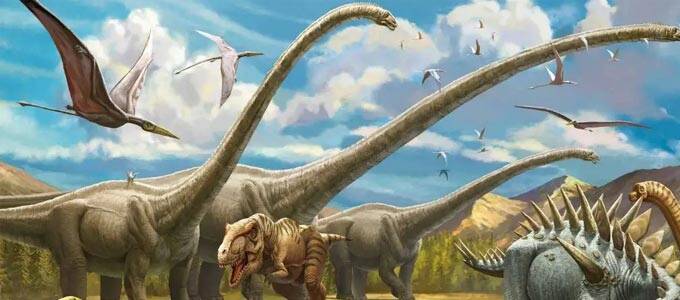The current scientific community believes that the dinosaurs became extinct due to a meteorite impact about 66 million years ago. New research finds that although the smoke from this impact briefly cooled the Earth, the impact introduced a large amount of carbon dioxide into the atmosphere, causing the Earth's climate to experience warming for about 100,000 years after the brief cooling.

Researchers from the University of Missouri in the United States and their colleagues in Tunisia published a report in the new issue of the American "Science" magazine, saying that by analyzing the oxygen isotope content in fish remains and fossils, they inferred that the ocean water temperature increased by about 5 degrees Celsius after the meteorite impact, and continued It took about 100,000 years before it fell back.
The fossils, which include fish bones, teeth and scales, come from the northwestern region of Tunisia. They are spread over several meters of rock formations, and from them can be inferred about 250,000 years of geological history, during which the meteorite impact occurred.
There are many isotopes of oxygen. The most abundant ones on earth are oxygen 16 and some oxygen 18. Climate warming will affect the relative proportion of the two in seawater, and this change will be reflected in marine organisms. Analysis shows that after the meteorite impact, the ratio of oxygen 18 to oxygen 16 in seawater dropped by about 1%, which means that the water temperature increased by about 5 degrees Celsius.
Existing theories suggest that meteorite impacts can trigger wildfires that burn vegetation and cause carbonates in the Earth's crust to decompose and volatilize, causing large amounts of carbon dioxide to be released into the atmosphere. In the months to decades after the impact, soot blocked out sunlight and cooled the climate, leading to mass extinctions of life. After the dust settles, the greenhouse effect of carbon dioxide begins to work, warming the climate.
Previous studies have confirmed that the climate briefly cooled after the meteorite impact, but there was a lack of data support for the warming process. The new research provides evidence for related theories and helps to gain a deeper understanding of the impact of this impact on Earth's climate and ecosystems.
animal tags: meteorites dinosaurs extinction fossils ecology
We created this article in conjunction with AI technology, then made sure it was fact-checked and edited by a Animals Top editor.